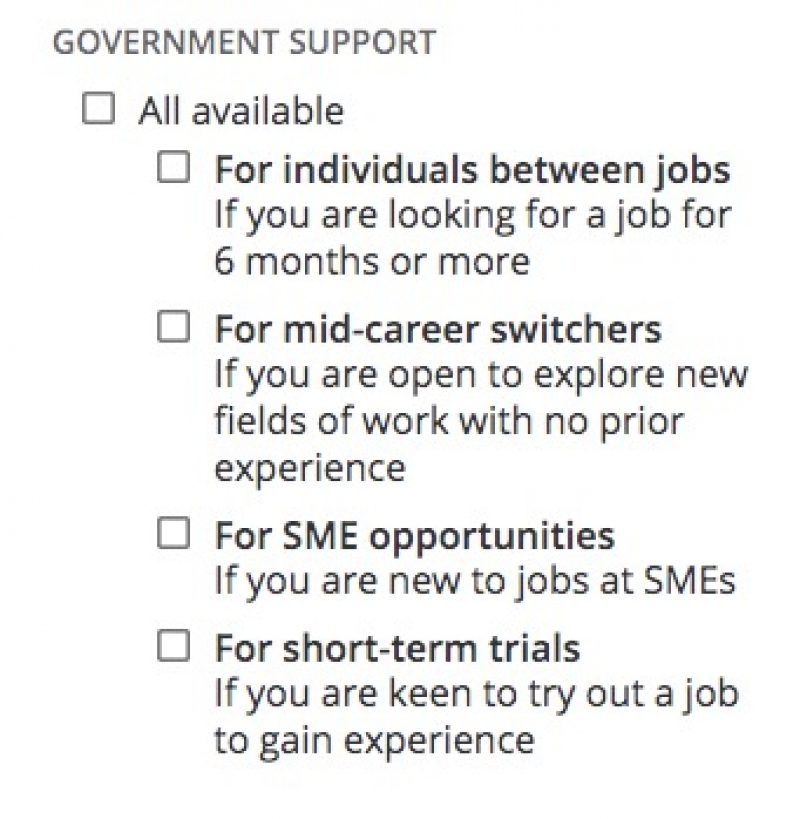Some of you may be old enough to remember the terrible job market that awaited job-hunters during the last 2008-2009 financial crisis.
Whether you were a fresh graduate, recently retrenched, or looking to make a career-switch, the options were severely limited.
In 2020, the US-China trade war, the Russia-Saudi Arabia oil price war, and the global Covid-19 pandemic all teamed up like supervillains to batter the economy.
Not surprisingly, as a small open trading nation, Singapore has taken quite a hit.
The Ministry of Trade and Industry reported that Singapore’s GDP contracted by 5.4 per cent in 2020, with a rise in resident unemployment rate of 1 per cent.
Retrenchments, no-pay leave and shorter hours can potentially hit those with jobs. Finding a new one in this climate must feel like sailing into a storm.
A CNA article quoted a lawyer, Muntaz Zainuddin, who said that she received a “50 per cent increase” in employment enquiries, both from firms and workers. These included new hires whose companies stopped contacting them, effectively rescinding their job offers.
Your best move might be to keep abreast of developments in your industry and develop the know-how for job-hunting even when you are employed now.
Take the leap
It sounds counterintuitive. Your instincts may be to stay where you are. But remember the fable of the frog in a pot of water, on a stove. It stays inside, even when the heat is getting turned up. By the time the water is boiling, it is too late to escape.
And if you do get retrenched, time is not your ally. The longer you go without a job, the greater the financial burden.
It may be tempting to wait until a better job offer comes along. After all, a job is a serious commitment, and you naturally want the best position for yourself.
But these are extraordinary times. The way things go, there could be three paths forward:
- Remain where you are, and risk it.
- Get retrenched, and spend a long time out of work, looking for a job.
- Start actively looking for a job while you’re still employed.
Staying unemployed is not advisable
Although this can happen through no fault of your own, a period spent unemployed makes it harder to find a job.
A study conducted by the UCLA Anderson School of Management and the State University of New York at Stony Brook in 2011 found that “unemployment stigma exists”, it occurs instantly, it is hard to alleviate, and it leads to hiring biases against the unemployed.
It also found that it didn’t really matter whether the job-seeker was laid off, or left their previous job voluntarily, the bias still existed.
And the longer this lasts, the worse it gets. According to a Forbes contributor, recruiters tend to dismiss job applications from people who have been out of work for a year or longer.
Be flexible
So if there are fewer job opportunities out there, and it’s important not to leave gaps in your resume, what’s the next best option for a job-seeker?
In fact, there are other job offers besides permanent positions - short-term and temporary jobs.
Some companies may not be looking to hire full-timers, but are still looking for people to fill temporary positions. And while this may not be your cup of tea during normal circumstances, the circumstances are not normal.
No one knows how quickly the economy will fully reopen and recover, even if everyone who wanted a vaccine got one.
In such circumstances, it may be better to start looking now and narrowing your options down to the job that’s right for you.
Also, keeping an open mind about temporary or short-term positions might be good for your own self-esteem and confidence.
Facing rejections or “ghosting” from companies can be a big blow. It may be tempting to just watch TV and sit around at home, but it may just compound negative feelings of doubt and guilt.
By engaging in productive talks with companies willing to offer a short-term position, you can be reminded of all you have to offer, and have a more positive mindset with which to face these tough times.
Streamline your search
Most commercial job portals can make your search easier if you input key details like your experience, background, skills and asking salary.
MyCareersFuture.sg makes things even easier with some settings related specifically to newcomers and people who may not have looked for a job in a while.
 Image from MyCareersFuture.
Image from MyCareersFuture.
Check the boxes as appropriate, and find a job opportunity that is more suited for your needs.
If you’re more inclined to sift through a steady stream of job openings, they can be found through a Telegram channel, SG United Jobs. It pushes applications directly to you via your phone, so you will always be alerted to a new job offer.
And while physical career fairs are on ice for the time being, virtual career fairs are still going strong.
Organised by Workforce Singapore (WSG), there are monthly thematic virtual career fairs and fairs which are divided by industry, so you can quickly find open positions that suit your particular set of skills.
Walk-in interviews are also conducted regularly at Community Clubs across the island, where jobseekers can connect up with hiring employers virtually, through the interview platforms on-site here.
Expanding your horizons
Temporary jobs don’t have to be temporary opportunities.
If you get the job and make a good impression, you may receive a permanent offer at the end of their stint. The key is getting your foot in the door.
A temporary job may also be more suitable for this circuit breaker period and beyond - whether it involves working from home, or an essential service that is allowed to continue operating.
And even if it does turn out to be a pitstop on your professional journey, the skills and experience you pick up could be very helpful in getting the ideal job after this one.
In addition, depending on the industry you choose, you may pick up useful contacts. In the words of an NUS career advisor, networking is not a “dirty word”, but a necessary skill.
It opens doors, helps to advance your career, and it is a skill that can be learned even if you’re an introvert. Your sojourn in temporary work may be just the springboard you need to gain a better job offer in the future.
Think differently
If you’ve been laid off and are looking to get back on the job market, you could choose to switch to a growth industry, or use your existing skills in a new way.
For instance, if you’re good with social media and have a sizable online presence, you could translate those skills into running the social media accounts of a company, and extend their reach.
If you’ve been thinking about turning your passion into an online business, you could use the downtime to learn the basics and start building your empire from the ground up.
If you need extra help or coaching to guide you through your job search, Workforce Singapore can help. You can sign up now via this link for Workforce Singapore to get in touch and offer you career guidance solutions, including a possible career coaching session.
This service is complimentary for Singaporeans and PRs.
A career coach will be able to assess your skills and circumstances, and offer advice tailored to you. Retrenchment is a painful experience, and job-seeking takes a lot of time and effort, but with the proper support, you’ll be able to put it behind you and get back on your feet.
Good hunting.
Top image from Workforce Singapore’s Facebook page.
This Workforce Singapore job search advice will be useful for this writer if he gets fired.
If you like what you read, follow us on Facebook, Instagram, Twitter and Telegram to get the latest updates.
